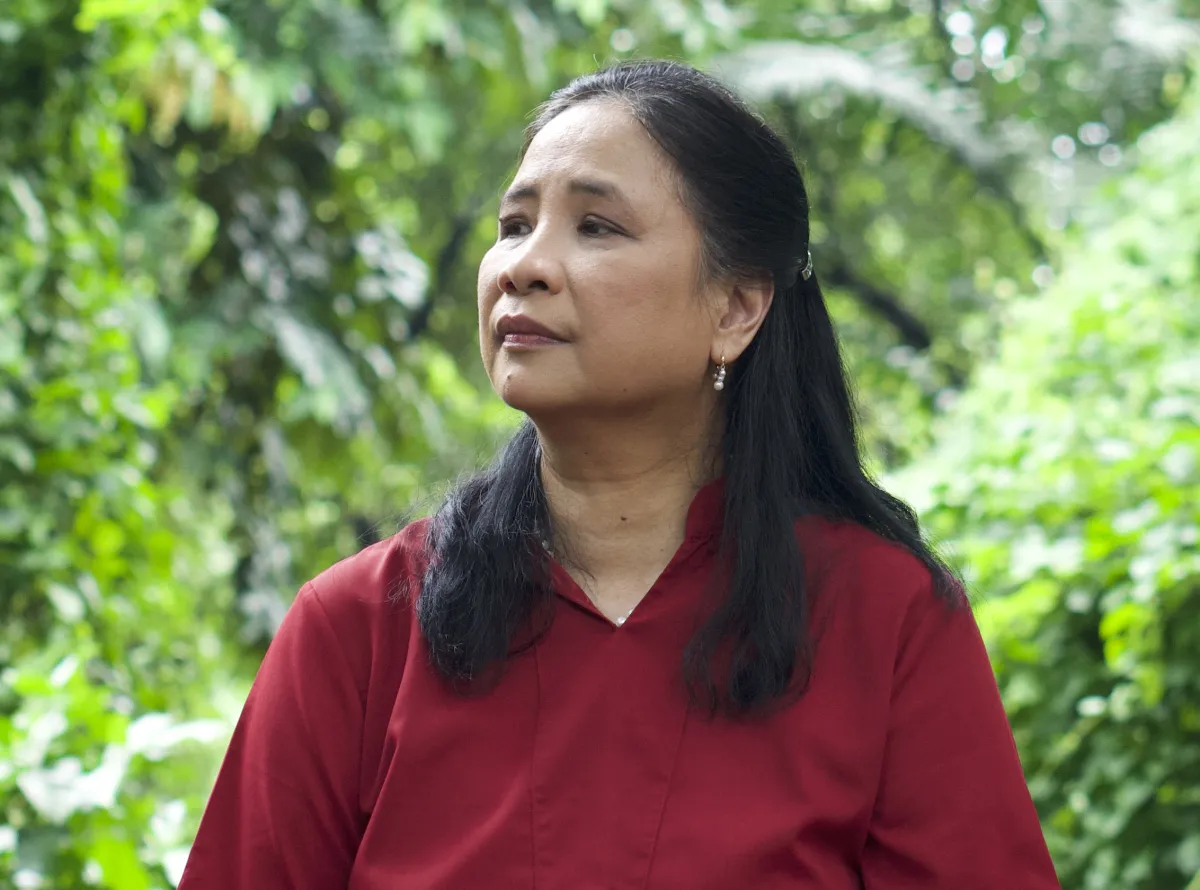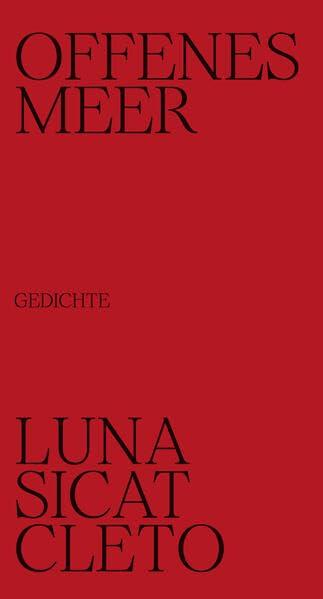Open sea

 Edition Tincatinca
Edition TincatincaLuna Sicat Cleto | Offenes Meer - Gedichte | Edition Tincatinca | 96 Seiten | 28 CHF
Between dictatorship and menopause
The poems of Filipino author Luna Sicat Cleto are down-to-earth, contemporary and at eye level, unpretentious and accessible. Some seem so relatable and understandable that they could have been written at the neighbouring desk in our own editorial office or university - if not for the appearance of the odd monitor lizard. Then, on the surface, they deal with the everyday: cooking dinner and the dirty dishes in the sink; waiting for the maid who is stuck in traffic - "How does a mother write poetry? By stealing, is the answer"; jogging and dreaming, nature, family and work colleagues; shoddy umbrellas lost on the train, hopeless as protection against tropical downpours - "There you stand, dripping"; loss, when a fire destroys all the offices and with them the private books of an entire university department.
Foreign country, unknown language
On another level, Sicat's easily accessible poems also reflect 30 years of contemporary history - and the consequences of more than 400 years of colonisation - of this distant, tropical country, of which we in Western Europe, let's face it, generally know little and which we do not even necessarily automatically associate with a once-colonised country. We owe to the Swiss translator (and writer) Annette Hug not only the publication itself, but also an extremely informative afterword and a number of footnotes that clarify any cultural allusions for non-Filipinos, from martial law, torture, executions and book burnings to state architecture and the execution of a Filipino nanny accused of murder (Flor Contemplacion, Singapore 1995).
Annette Hug ("Wilhelm Tell in Manila") is involved here to an unusual extent as a linguistic and cultural mediator and offers German-speaking readers an engaging insight into a language that functions in a fascinatingly different way. The volume's landscape format, allowing the juxtaposition of all the poems in both languages, pleasingly emphasises this aspect: The very successful, cool and modern design with elegant fonts and chic Swiss binding with open thread stitching is the work of Swiss designers from the Pool Practice agency in Berlin.
Overcoming the colonisation of language
It's hard to believe that these almost 100 pages are the first time (to our knowledge) that a comprehensive literary direct translation from Filipino (Tagalog) into German has been published, bypassing English (or, in earlier centuries, Spanish). This is another reason why this elegant little volume of poetry is the perfect introduction to the focus country of this year's Frankfurt Book Fair.
Significantly, the famous works of the Philippine national hero and poet José Rizal were written in Spanish, and today, for pragmatic reasons alone, the English of the former colonial power, the USA, predominates. There are between 120 and almost 200 endemic languages (depending on the definition of language or dialect used), meaning that English has (by necessity) served as the language of the authorities, schools and education since the American occupation, even after independence in 1946. In this context, it is therefore also a cultural and political statement that the author, who teaches Filipino literature and creative writing in Manila, writes in Tagalog and that the German translation is published bilingually.
Sicat's father Rogelio Sicat (also a writer, like her mother Ellen Sicat) already attached great importance to Filipino or Tagalog (the language of Manila, from which Filipino is derived), said Sicat Cleto (born 1967) at a reading in Zurich. Conversely, writing in Tagalog naturally also means that Cleto is far less internationally accessible and translatable than she would be if she wrote in English, as do around two thirds of her compatriots. Her decision can therefore be seen as an important gesture towards her compatriots. The fact that one of the very few competent Tagalog translators has provided a German translation has therefore already been celebrated by Katharina Borchardt on Deutschlandfunk radio as a "great moment in German translation history".
"Writing a poem," says Palestinian poet Mosab Abu Toha, "is an act of resistance against forgetting. Not only the forgetting of history or experience, but also of the feeling that triggered this experience." In this sense, this small, low-threshold collection of poems can be seen as an attempt to undo an imposed cultural forgetting that has already taken place.



